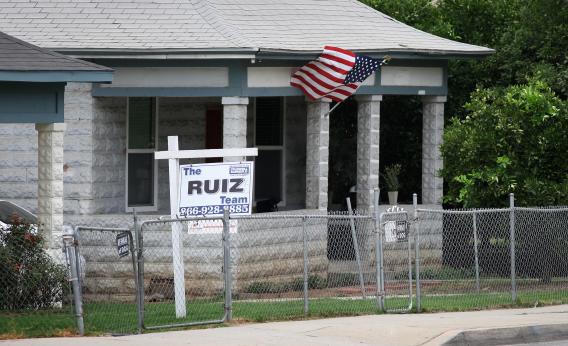America’s housing watchdog is taking a wise move to bolster the market. The Federal Housing Finance Agency, which oversees mortgage behemoths Fannie Mae and Freddie Mac, will make it easier for underwater borrowers to sell their homes at current prices. That’s better all round than the alternative some are pitching of simply cutting the amount people owe.
Advocates for such loan modifications - known as principal reductions - argue they would benefit not only borrowers who owe less than the value of their property, but also help the housing market find its footing.
They have a point, but slashing people’s loan balances introduces moral hazard. It could encourage borrowers - who otherwise planned to pay - to default so that they, too, could shed some mortgage debt. If the trend caught on, it could have left American taxpayers on the hook for as much as $128 billion, according to Breakingviews’ calculations. That’s why FHFA boss Edward DeMarco rightly rejected the idea.
But something needed to be done about all the mortgages still underwater in the United States, amounting to negative equity of $1.2 trillion, according to Zillow. Leaving the situation unresolved could drag down the market for years.
Encouraging short sales is the better solution to these problems. First, the new FHFA policy will not apply to those who would otherwise continue to pay. But it does allow borrowers still making their payments to sell for less than they owe if their circumstances change - like divorce, unemployment or the death of a co-borrower. Even relocating for a new job now qualifies - marking a strong rebuttal to criticism that DeMarco doesn’t understand the bigger economic picture. These additions demonstrate flexibility while minimizing incentives to default.
Second, the FHFA is not just expanding the rules to encompass such changes, it’s also streamlining the entire process. That should speed up sales by homeowners trapped by debt, encourage prices that are more acceptable to both buyers and sellers and thus add some stability to the market.
This new policy won’t solve the problem of underwater mortgages entirely or silence critics who want to keep troubled borrowers in their homes no matter what. But it will help alleviate some of the strain without undue risk to taxpayers. That shows a deft touch.
Read more at Reuters Breakingviews.
